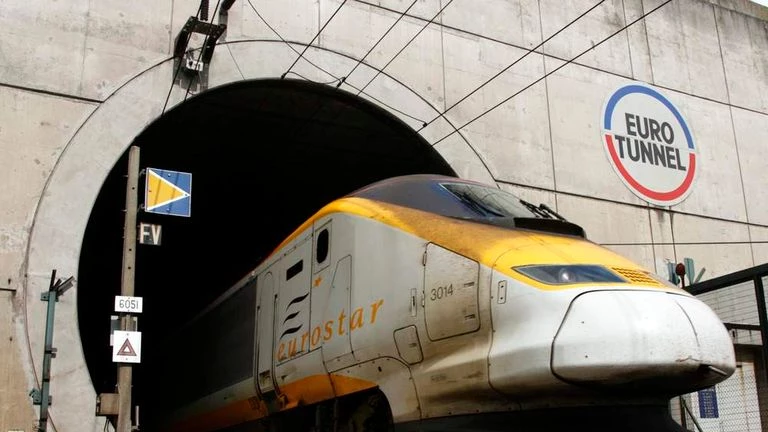A shock strike by workers operating the Channel tunnel blocked train travel Thursday between Britain and France, leaving thousands of pre-Christmas travellers as well as freight traffic stranded.
There were scenes of chaos at Gare du Nord station in Paris and St Pancras in London -- the main hubs for cross-Channel train travel -- as travellers waited for services to resume only to be told their trains were cancelled.
Four trains were held en route when the surprise strike started, returned to their starting point and then cancelled.
The Channel Tunnel opened in 1994 as the first undersea link between France and the English coast. It carries passengers on Eurostar trains as well as cars and freight vehicles on special cargo trains.
Eurostar trains also run direct to Belgium and the Netherlands through the tunnel via the northern French city of Lille.
"Due to unexpected strike action by Eurotunnel staff, services are currently not able to proceed through the Channel Tunnel until mid-afternoon at earliest," said Eurostar in statement.
It added it could not provide information for Friday's services.
"We'd urge all passengers to postpone their travel due to the Channel Tunnel closure and the continuing uncertainty."
The strike is being carried out by employees of the Eurotunnel, a subsidiary of the tunnel's French operator Getlink.
It appears to be indefinite, with no immediate indication when services will resume.
Getlink said French "trade unions rejected a bonus of 1,000 euros ($1,100) end-of-year bonus announced by management and have called for a strike to demand it be tripled."
Unions behind the move said the strong mobilisation by staff to follow the strike "was not a surprise".
"For several months, all unions have alerted general management to the terrible deterioration of the social climate," they said in a joint statement.
- 'Disneyland with the kids' -
French Transport Minister Clement Beaune described the closure as "unacceptable" and added that a solution had to be found.
"I call on everyone to be responsible and ensure good conditions for traffic and holiday departures," he said.
The announcement of the cancellation of services sparked dismay in train stations, with people scrambling to change their reservations on their phone or even book a last-minute flight.
Thomson Mouana, from South Africa, with three children with him, had been in the UK on holiday but needed to leave for his flight home.
"This is disturbing us. We don't have the money and we don't know what to do."
"We must get to South Africa but now we are stuck."
English traveller Sam Boyal said: "We were going to Disneyland (outside Paris) with the kids... it's just too stressful. You can't drive suddenly with three kids, you've got to plan that."
Eurostar employees meanwhile announced at the Gare du Nord station in Paris on a megaphone that all trains for the rest of the day were cancelled.
At Calais in northern France, long queues of vehicles of more than a kilometre were beginning to form at the entrance to the French terminal where cars and trucks board trains to reach the English port of Folkestone on the other side of the Channel.
Eurostar is owned 55.75 percent by French state-owned SNCF Voyageurs, 19.31 percent by a Quebec public investment bank, 18.5 percent by Belgian operator SNCB and 6.44 percent by US-based Federated Hermes Infrastructure.
It almost went bankrupt during the Covid-19 pandemic but was saved with a 290-million-euro bailout from shareholders including the French government.
The company is reporting solid passenger numbers but increased checks after Brexit have also forced it to reduce capacity.
Earlier, APP reported that a wildcat strike by workers operating the Channel tunnel has blocked train travel between France and Britain since midday Thursday, train operator Eurostar said.


